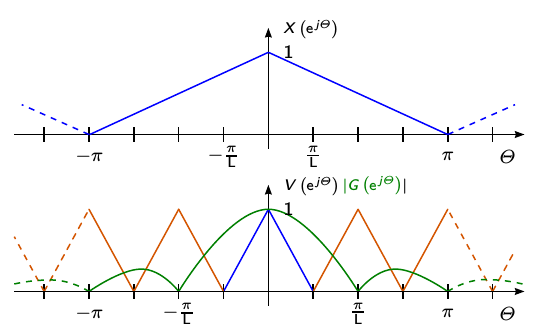Discrete-time signal processing
Brief description

The lecture Discrete Time Signal Processing provides an introduction to elementary techniques of digital signal processing. Particular emphasis is placed on a description that is as clear and practice-orientated as possible. Students gain their own practical experience in the exercises through the use of Python.
Lecture contents
- Discrete-time signals: elementary signals, even/odd signals, harmonic exponential oscillations
- Fourier series of periodic discrete-time signals: Parseval theorem, symmetry relations
- Discrete-time systems: LTI, impulse response
- Fourier transform of discrete-time signals
- Sampling theorem
- Difference equations and z-transform
- FIR and IIR filter design
- DFT, FFT
- Cyclic convolution, overlap-add and overlap-save
- Multirate signal processing
Learning outcomes & professional competences
After completing this course, students will be able to
- describe discrete-time signals and systems in the time and frequency domain using signal processing methods
- analyse and evaluate discrete-time systems with regard to stability, transient response, etc.
- design self-contained digital filters with specified properties
- realise digital filters in software in a computationally efficient manner
- implement more complex signal processing algorithms in Python in a computationally efficient manner
The students
- have acquired extensive skills in Python, which can also be used outside the realisation of signal processing algorithms,
- can design, implement and test a programme from a given task and evaluate, present and discuss the results obtained,
- can analyse more extensive tasks together in a group, break them down into subtasks and work on them in a solution-oriented manner.
Methodical realisation
- Lectures with predominantly blackboard use, occasional slide presentations
- Classroom exercises with exercise sheets and demonstrations on the computer
- Practical exercises with Python, in which students independently develop solutions and implement, test and analyse signal processing algorithms.
Recommended literature
Doblinger, Gerhard: "Zeitdiskrete Signale und Systeme", An introduction to the basic methods of digital signal processing
You are interested in:


